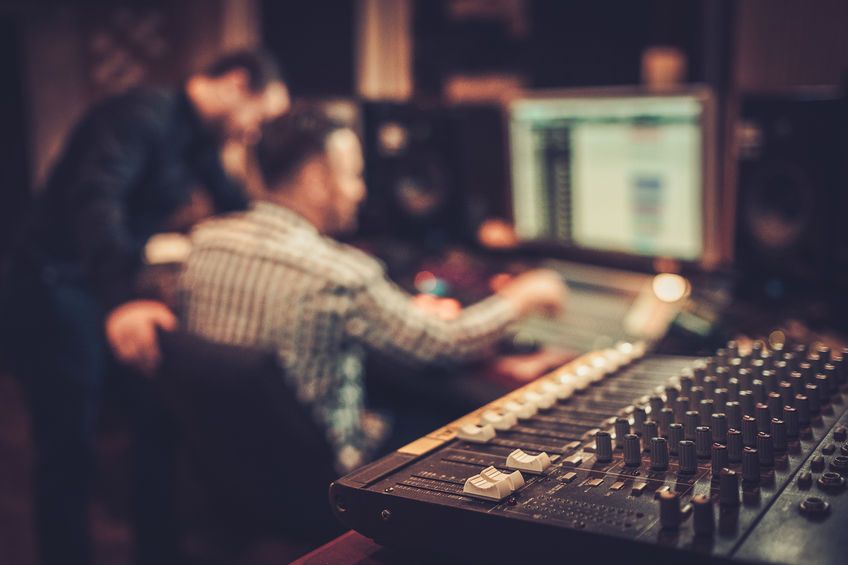Music has a special ability to elicit emotion and bring people together. It’s no wonder that some of the most well-known organizations are recognized and even defined by the songs that accompany their advertisements or calls to action. Oftentimes, an organization may want to advertise or inform using a particularly nostalgic song. For example, let’s say a Miami non-profit organization wanted to use a 1956 song for commercial and noncommercial purposes. The organization’s directors read my previous blog post, so they know that before proceeding, they must determine whether the song is entitled to copyright protection.
In order to determine the work’s level of protection under U.S. copyright law, several questions must be addressed. First, what kind of work is it? Copyright law affects musical works differently than other works. As I mentioned in my prior blog post, musical works typically generate two separate copyrights: one for the sound recording, and one for the underlying musical composition. In our case, the non-profit organization is only interested in the rights of the sound recording, independent of the underlying composition.
Next, when was it originally published? Identifying the year of initial publication is crucial, as that will determine which copyright law applies to the work.
What Are the Main Copyright Laws in the U.S.?
Over the past century, there have been two main copyright laws enacted in the U.S., along with subsequent amendments. The Copyright Act of 1909 applies to works published before 1978 and the Copyright Act of 1976 applies to works published on or after 1978. In this case, the work was published in 1956, therefore the Copyright Act of 1909 applies.
Under the 1909 Act, in order for the work to obtain copyright protection, a copyright notice was required to be fixed on every copy of the work. The 1909 Act provided for two consecutive terms of copyright: an original 28-year term from the date of publication, followed by a 28-year renewal term. This arrangement was modified by the Copyright Act of 1976, which extended the renewal term to 47 years for all works still in their original term as of January 1, 1978. Amendments to the Act extended the renewal term to 67 years for all works that secured copyright under the 1909 Act and were still under copyright protection as of 1998. In our case, the work published in 1956 must have been renewed before 1984 in order to secure the maximum 95-year term of copyright protection.
Pre-1972 recordings became protected under federal copyright law under The Music Modernization Act of 2018, which extended remedies for copyright infringement to owners of sound recordings fixed before February 15, 1972. These remedies are available for 95 years after first publication of the recording. For recordings first published between 1947 and 1956, an additional 15 years of protection is available. The rights owner of a pre-1972 sound recording is the person who, on October 10, 2018, had the exclusive right to reproduce a sound recording under the laws of any U.S. state, or a person or entity who acquired these rights from the original owner after October 10, 2018.
Do Non-Profit Organizations Have to Follow These Copyright Laws?
The third-party user of a pre-1972 sound recording does not need authorization from the owner if he/she is engaged in an activity that: (a) constitutes fair use; (b) falls under the libraries and archives exception; (c) falls under the first sale doctrine; (d) is a specific statutorily defined public performance or ephemeral copy; or (e) is covered by a statutory license. In addition, the law provides an exception for engaging in certain noncommercial uses of pre-1972 sound recordings that are not being commercially exploited. To qualify for this exemption, a user must file a notice of noncommercial use with the Copyright Office after conducting a good faith reasonable search and determining the sound recording is not being commercially exploited, and the rights owner of the sound recording must not object to the use within 90 days of the notice being indexed in the Copyright Office’s public record.
The Fair Use Doctrine promotes freedom of expression by permitting the unlicensed use of copyright-protected works in certain circumstances. Section 107 of the Copyright Act provides a framework for determining whether the use of a copyrighted work is considered fair use, and identifies certain types of permitted uses—such as criticism, comment, news reporting, teaching, scholarship, and research—as examples of activities that may qualify as fair use.
Finally, who are the authors of the work? With this information, you can confirm whether the authors have renewed their rights. Investigate a copy of the work for elements of a copyright notice, place and date of publication, author and publisher. If the work is a sound recording, examine the disc, tape, cartridge, or cassette in which the sound is fixed, or the album cover, sleeve, or container in which the recording is sold. Search the Copyright Office catalogs and other records. A work that is not readily available on streaming services and/other publication platforms may indicate that the work is not being commercially exploited and/or that its owner is not seeking to enforce its rights in the work. Discogs is a popular database of information about audio recordings.
Our attorneys are happy to discuss various noncommercial uses for copyrighted works that remain available to individuals and organizations. Noncommercial uses do not constitute infringement and/or require a license from the owner. We can also help you petition the U.S. Copyright Office at the Library of Congress for a formal Search Request. For an hourly fee, the Copyright Office staff will search the records of registrations and other documents concerning ownership of copyrights and will provide a written report. The Office will provide a cost estimate upon request.








